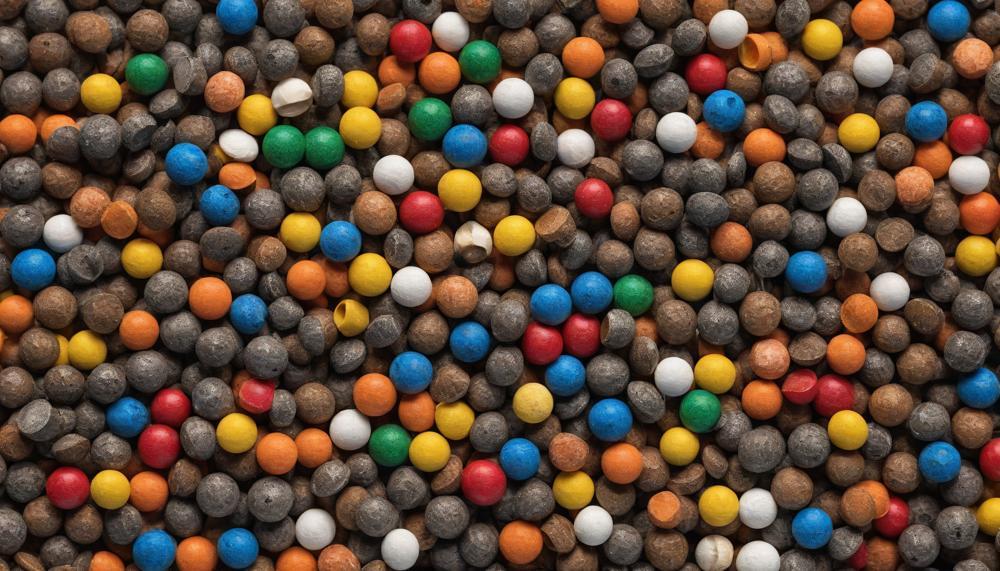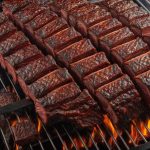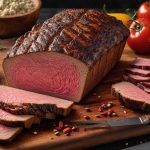Are you on the hunt for the best pellet fuel for your grill but not sure if Traeger pellets are your best bet? You’re not alone. Many grill enthusiasts wrestle with choosing between Traeger pellets and other brands available on the market. But do Traeger pellets really stand out from the rest?
Let’s dive into this burning question and give you a clearer view of the landscape.
In this blog post, we’ll cut straight to the chase and discuss whether Traeger pellets are a superior choice for your grilling needs. We promise to tackle this comparison with an unfiltered lens, highlighting the good, the bad, and the smoky details. Here’s what we’ll cover:
- Quality and Variety: Compare the wood sources, pellet consistency, and variety of flavors between Traeger and its competitors.
- Performance: Evaluate how these pellets perform under fire—literally. We’ll look at temperature control, ash production, and smoke flavor.
- Cost and Accessibility: Discuss the price points and availability of Traeger pellets versus other brands, helping you decide if they’re worth the investment.
Stay with us as we grill up some facts and help you make the best choice for your next barbecue session.
Contents
- 1 The Benefits of Traeger Pellets
- 2 The Drawbacks of Traeger Pellets
- 3 Comparing Traeger Pellets to Other Brands
- 4 Factors to Consider When Choosing a Brand of Pellet Fuel
- 5 How to Choose the Right Type of Pellet Fuel for Your Grilling Needs
- 6 Tips for Getting the Most Out of Your Pellet Grill
- 7 Pros and Cons of Using Traeger Pellets vs Other Brands
- 8 Conclusion
The Benefits of Traeger Pellets
Traeger pellets are highly regarded in the grilling and smoking community for their consistent quality and wide variety of flavors. Here are some of the primary benefits of using Traeger pellets over other brands:
- Consistency in Quality: Traeger pellets are made from 100% natural hardwood without any fillers or additives. This ensures that the pellets burn consistently and produce a predictable amount of heat, which is crucial for maintaining precise cooking temperatures.
- Variety of Flavors: Traeger offers a broad selection of wood types, each imparting a unique flavor profile to the food. This variety allows cooks to experiment with flavors like hickory, apple, mesquite, and cherry, among others.
- Low Ash Production: Traeger pellets produce less ash compared to many other brands, which means easier cleanup and maintenance of the grill or smoker.
- Sustainability: The wood used for Traeger pellets is sourced sustainably, making them an environmentally friendlier choice for grilling and smoking enthusiasts.
- Efficiency: The pellets are designed to burn slowly and evenly, which improves the efficiency of heat use and reduces the amount of fuel needed during cooking.
The Drawbacks of Traeger Pellets
When choosing Traeger pellets for grilling, one must consider several limitations compared to other brands. These drawbacks might sway your decision, particularly if you’re grilling under specific conditions or preferences.
- Limited Portability: Unlike lighter, more compact alternatives, Traeger grills are notably bulkier and heftier. This can pose a problem for those who love to grill on the go, like during camping trips or tailgating.
- Higher Initial Cost: Traeger grills, equipped with advanced technology and features, also come with a steeper price tag. This can be a deterrent for those who are budget-conscious or first-time grill buyers looking for a more economical entry point.
- Dependence on Electricity: Essential for operating the automated features of Traeger grills, electricity is a must. This requirement can be cumbersome in outdoor spots bereft of power outlets, thereby limiting where you can use your grill effectively.
- Pellet Availability: Although Traeger offers a rich array of wood pellet flavors enhancing the grilling experience, sourcing these specific pellets might be tricky depending on your location. The challenge of ensuring a steady supply could discourage some users.
These factors are crucial for prospective buyers to ponder over, especially if comparing with other grills that might offer more convenience in terms of portability and independence from electric power. The table below succinctly captures these points:

Comparing Traeger Pellets to Other Brands
Traeger pellets are distinguished by their quality and proprietary blends that impact both the grilling performance and the nuanced flavors they impart to food.
Key differences from other brands, such as generic or lesser-known pellet producers, often lie in the composition, consistency, and range of flavors available.
Key Differences in Detail:
- Composition: Traeger pellets are crafted from 100% natural hardwood. Unlike some other brands, Traeger ensures there are no fillers, binders, or additives, which enhances the purity of the smoke and the authenticity of the flavor.
- Consistency: Traeger’s pellets are known for their uniform size and low moisture content. This consistency ensures a steadier temperature and more reliable smoke production, crucial for maintaining flavor and cooking efficiency.
- Flavor Options: Traeger offers a wide range of specific wood flavors, such as hickory, apple, mesquite, and cherry, which are often used in their pure form or as part of a carefully crafted blend. Other brands may offer fewer choices and often use a base wood like alder or oak, flavored with oils or essences, which can affect the natural taste.
Impact on Grilling Performance and Flavor:
| Traeger Pellets | Other Brands |
| Consistent burn ensures even cooking | Potential for varied burn rates due to inconsistent pellet sizes |
| Natural wood smoke enhances flavor profiles | Use of oils or essences may impart artificial flavors |
| Wide range of pure wood options allows for nuanced flavor pairings | Limited flavor options can restrict culinary creativity |
These differences translate into a superior grilling experience with Traeger pellets, as the natural and consistent quality of the pellets allows grillers to fine-tune their cooking process to achieve the desired smoke intensity and flavor richness.
This is essential for those who view grilling not just as cooking but as an art form, aiming to achieve the perfect harmony of smoke and flavor.
Factors to Consider When Choosing a Brand of Pellet Fuel
| Factor | Traeger Pellets | Other Brands |
|---|---|---|
| Composition | Traeger pellets are renowned for their pure hardwood composition, ensuring consistent burn and authentic smoke flavour. | Other brands may use various wood blends or include fillers, affecting burn consistency and flavour authenticity. |
| Flavor Options | Traeger offers a wide array of natural flavours derived from different hardwoods, providing diverse grilling experiences. | Some brands may offer fewer flavour options or use artificial additives to simulate wood flavours. |
| Quality Control | Known for stringent quality control measures, Traeger ensures each pellet meets high standards for size, moisture content, and purity. | Quality control practices may vary among brands, potentially leading to inconsistencies in pellet size and burn efficiency. |
| Availability | Widely available both online and in retail stores, ensuring accessibility for consumers. | Availability may vary regionally or online, affecting convenience and accessibility. |
| Price | Generally positioned at a premium price point, reflecting the high-quality ingredients and manufacturing standards. | Prices may vary, with some brands offering more affordable options but potentially compromising on quality. |
When choosing between Traeger pellets and other brands of pellet fuel for grilling, several key factors come into play. Traeger pellets are distinguished by their pure hardwood composition, extensive flavour options, and stringent quality control.
This ensures a consistent burn and authentic smoke flavour, ideal for grillers who value precision and taste. In contrast, other brands may offer different wood blends or use fillers, affecting burn consistency and flavour authenticity.
Factors like availability and price also influence the decision, with Traeger pellets generally priced higher but offering reliability and a wide range of flavours.
How to Choose the Right Type of Pellet Fuel for Your Grilling Needs
When selecting the right type of pellet fuel for grilling, particularly between Traeger pellets and other brands, there are several critical factors to consider. Here’s a straightforward breakdown:
- Composition and Quality: Traeger pellets are renowned for their consistency and quality, often made from 100% natural hardwood without any fillers or additives. In contrast, some other brands might blend in fillers or use lesser-quality wood. This can affect both the flavor and the burn efficiency.
- Flavor Variety: Traeger offers a wide array of flavors, from hickory and apple to more exotic blends like cherry and mesquite. This variety can enhance different types of foods distinctively. Compare the flavor offerings of other brands to ensure they meet your specific grilling tastes.
- Burn Efficiency: Pellets should burn cleanly and efficiently, producing minimal ash. Traeger pellets are engineered to maintain an even burn, while some other brands may have varying burn qualities which could influence grilling temperature and maintenance.
- Availability and Price: Consider the availability of the pellet brands in your region and their price point. Traeger pellets are widely available, but they might come at a premium compared to some other brands that offer competitive pricing with reasonable quality.
- Compatibility with Your Grill: Ensure the pellets are compatible with your grill model. While Traeger pellets are optimized for Traeger grills, they work well in most pellet grills. However, some grills might perform better with specific brands.
Tips for Getting the Most Out of Your Pellet Grill
Below are detailed strategies designed to enhance both the performance and efficiency of your pellet grill:
Temperature Management:
Initiate the cooking process by setting a low temperature for the first 30-60 minutes. This method intensifies the smoke’s infusion into the food, enriching flavor complexity.
Maintenance and Cleaning:
Regular upkeep is crucial. Ensuring the burn pot is devoid of ashes every 10-15 hours of use mitigates issues related to airflow and temperature control.
Additionally, managing grease accumulation in the drip pan and grease tray is vital to prevent odors and maintain the grill’s integrity.
Fuel Quality:
Opt for premium wood pellets to guarantee a consistent burn and robust smoke output.
This choice directly influences heat reliability and flavor profile of the dishes.
Accurate Temperature Control:
Employ a high-quality thermometer to precisely monitor the grill’s temperature.
Such precision aids in preventing fluctuations that can impact cooking outcomes.
Pellet Storage:
Store pellets in a dry environment to prevent moisture uptake which can lead to swelling and degradation, thus preserving their quality and combustibility.
Pellet Inspection:
Before each cooking session, inspect the pellets for any signs of damage or deterioration to avoid possible negative effects on both grill performance and food flavor.
Pros and Cons of Using Traeger Pellets vs Other Brands
The key advantages and disadvantages of using Traeger pellets compared to other brands when grilling can be summed up succinctly. Here’s a look:
| Aspect | Traeger Pellets | Other Brands |
| Versatility | Highly versatile with abilities to smoke, roast, bake, and braise. | Often limited to basic grilling functions. |
| Convenience | Automated pellet delivery and digital control panel simplify cooking. | Manual settings and more hands-on monitoring required. |
| Flavor | Wood pellets infuse a unique, smoky flavor into the food. | Flavors can vary; some might lack the distinct wood-fired taste. |
| Precision | Digital controllers offer precise temperature control. | Temperature control can be less accurate and more variable. |
| Portability | Generally larger and less portable. | More varied in size, often more portable. |
| Initial Cost | Higher upfront cost. | Typically more budget-friendly options available. |
| Fuel Dependency | Must use wood pellets, which could be an added expense and less available. | Often use more readily available fuels like gas or charcoal. |
Conclusion
As you fire up your grill for the next barbecue session, the choice of pellet fuel can be as impactful as the recipe itself. Traeger pellets distinguish themselves with their superior consistency and variety. Made from 100% natural hardwood, these pellets burn steadily, providing a predictable heat that is essential for precision cooking. The absence of fillers not only elevates the purity of the smoke but also minimizes ash production, simplifying your post-cook cleanup.
Traeger’s array of flavors, from hickory to cherry, allows for creative culinary experiments that can truly tailor the taste to your palate. Moreover, the pellets are sustainably sourced, aligning with eco-friendly practices that resonate with today’s environmentally conscious consumer.
However, it’s worth weighing these benefits against potential limitations like the higher cost and dependency on electricity for automated features. Also, the specific pellet flavors that enhance the grilling experience might not be readily available everywhere, which could be a hiccup in maintaining a steady supply.






